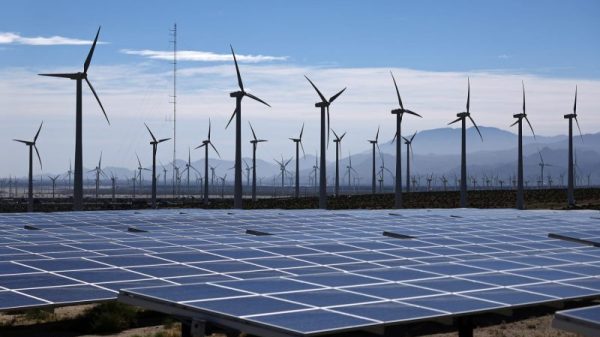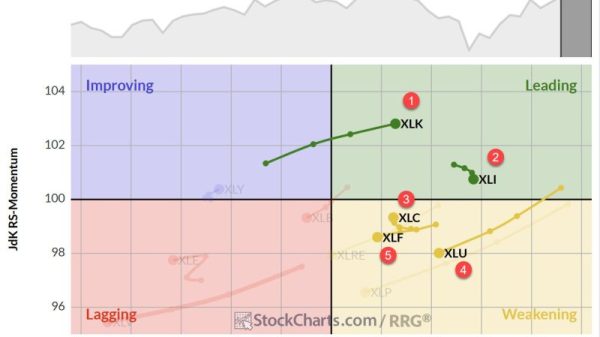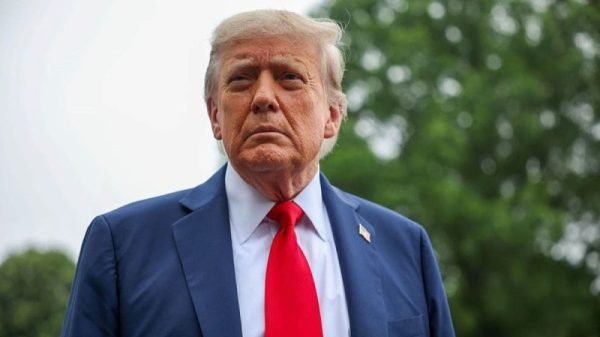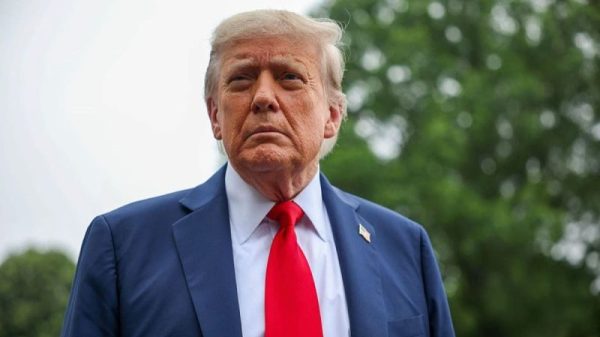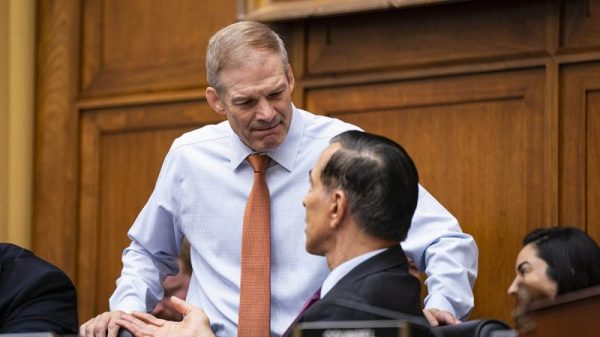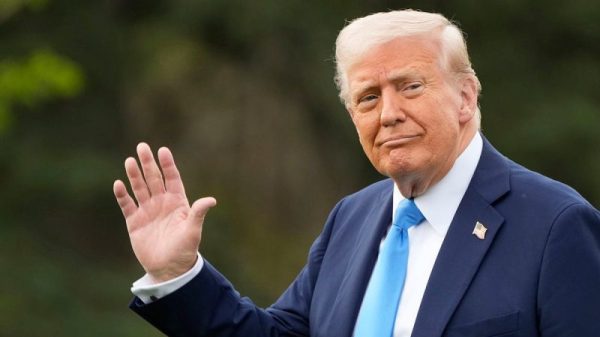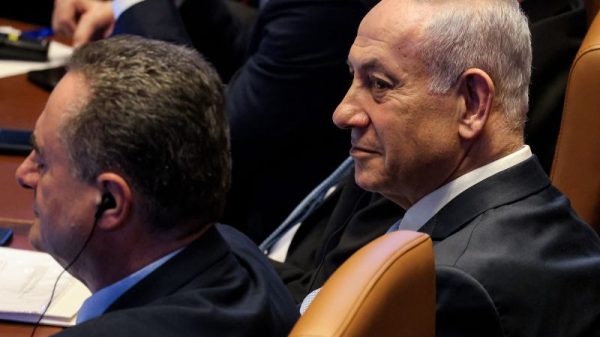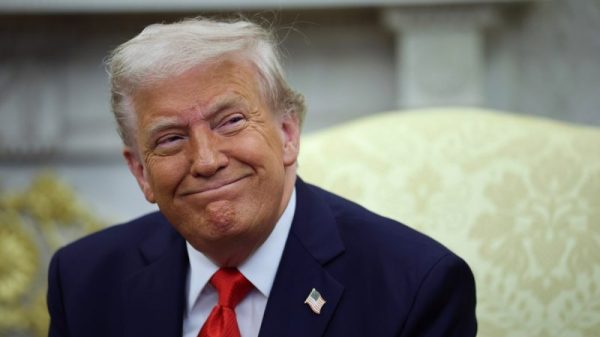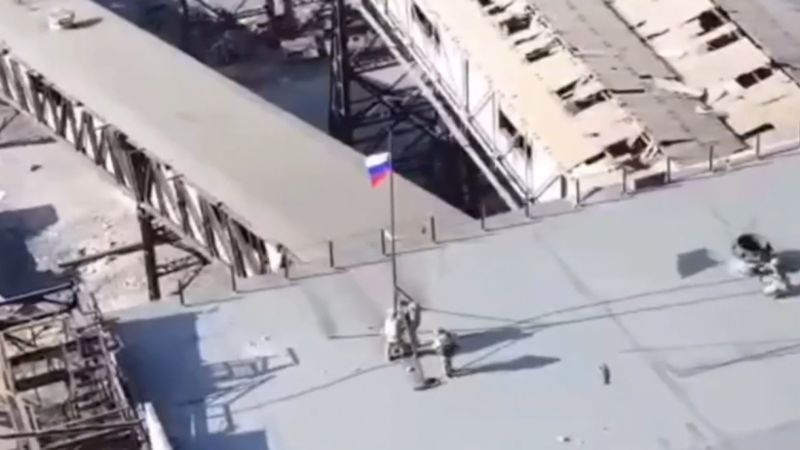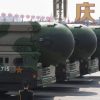It is a pivotal moment, where both Russian advances and Western atrophy threaten to transform the biggest land war in Europe since the 1940s.
Traveling from the Munich Security Conference towards Ukraine’s frontlines, the polite frustration and manicured pleas of Western leaders and Ukrainian President Volodymyr Zelensky feel yet more desperate. The warnings that Ukraine might suffer setbacks on the frontline if the United States Congress continued to hold up a $60 billion aid package have now curdled into a bitter, brutal reality.
The pledges and rhetoric of Munich’s suits and limousines have so far amounted to little; in the wait, or abyss, ahead, Ukraine is losing people and land. It is all very real, very immediate and stark. After months of stalemate, the possibility of sweeping changes on the frontlines is quite real.
The horrific death of Russian opposition leader Alexey Navalny meant the brutality of the Putin regime was amplified and crystal-clear for European leaders who had feared the gathering would be dogged by doubts over a future Trump presidency’s adherence to the NATO alliance. Latvia’s president spoke of “murder,” Germany’s defense minister of how the death showed Russia was “willing and able to provoke” the West. Ukraine reasoned it was clear proof Putin was too irrational a man to negotiate with.
Yet still, the conference – often a talking shop, fixated on entourages and colored-passes over concrete results – ended without major progress. US President Joe Biden had said in 2021 that Navalny’s death would lead to “devastating consequences” for Russia. Yet the White House’s toolkit has been somewhat emptied by the 2022 invasion and as of Monday morning – 72 hours after Navalny’s passing was announced – no measures have been announced. Indeed, Vice President Kamala Harris could only berate the “political gamesmanship” of a Republican-led Congress that has just taken two weeks off.
Meanwhile, Zelensky – taking the stage in Munich right after Ukraine announced its withdrawal from the significant eastern frontline town of Avdiivka on Saturday – found the climate of defeat in Ukraine, and savagery in Russia, did almost nothing to bring the urgently needed US billions closer.
In and of itself, the Ukrainian defeat Avdiivka does not herald a sea change in Kyiv’s fortunes. It is only of moderate strategic importance. But Ukraine held it for a decade, since Russia’s first invasion in 2014 pushed into the Donbas region. Ukraine announced a voluntary withdrawal after months of immense Russian pressure, a choice perhaps fomented by some political realities. The defense of Bakhmut — another town on the eastern front that Moscow was willing to squander thousands of lives to take last year — did, critics of Ukrainian policy argue, cost Kyiv resources it would have better devoted to its counteroffensive in the south last summer.
That counteroffensive failed, and the reshuffle of Ukraine’s top brass — in which the architect of the failed summer push, General Valerii Zaluzhnyi, was replaced by his top deputy Oleksandr Syrsky — comes at both the worst and best time, depending on who you are talking to. The animosity between Zelensky and his military chief had become a distraction to the war effort, and new ideas were clearly needed.
Yet Syrsky must replace a near iconic commander who is deeply popular with troops and civilians, at a time when Ukraine is hobbled in all directions. He does not have a moment to take stock or reassess. Some analysis has seen Syrsky’s opening act of withdrawing from Avdiivka as a bid to show he is a more protective custodian of troops’ lives than his hard man reputation would suggest.
Kyiv is now dealing with Russian surges on many fronts. After Avdiivka, they may attempt to sweep up other surrounding villages. Yet the fall of this railway hub frees up Kremlin units and air power to fight elsewhere. That could be Vulehdar to the south. To the west, one of the main and incremental gains of the southern counteroffensive — Robotyne, where hundreds died in pitched battles for a tiny village — is under threat. Russian bloggers have suggested a full assault on its eastern flank. Ukrainian officials insist they have been repelled. There is pressure near Kupiansk, on the edges of Kharkiv, and there also could be another Russian surge around Bakhmut.
The extent of Russia’s capabilities and intent is unclear at the moment, and it is important to remember the mess and collapse they were in a year ago was under the same president and defense minister. But they are badly in need of demonstrating a win ahead of Putin’s rubber-stamp re-election as president just under a month from now. Their military-industrial complex appears to be humming in producing war materiel, and the Kremlin’s coffers have never been fuller.
It would be a mistake to think Putin – with his state apparatus and economy now fully retooled for indefinite conflict – has curbed his ambitions. He even spoke about Poland, a NATO member, as an errant vassal in his recent interview with Tucker Carlson. How far he is willing to go remains unclear, but the fact that the answer to the question is unknown should be cause for concern.
The key asset of Russia’s forces now is persistence – dogged and callous. Moscow has something Kyiv lacks, and that is a constant stream of recruits — conscripts, mercenaries, prisoners — for the frontlines, which it is willing to waste for minor objectives, with unimaginative frontal assaults, and can replenish at a staggering rate.
Conversely, Ukraine lacks manpower and is stalling on a decision to widen the draft to include 25- and 26-year-olds. Zaluzhnyi wanted another 500,000 men, and that has yet to happen. Ammunition is lacking, and so on imperilled frontlines, Ukraine must ration shells, while Moscow’s forces can even rely on top-ups from as far away as North Korea to keep their artillery stocked. Western aid, replenished by the European Union last month, is still meager because of Republican dysfunction in Congress. The House has gone on a two-week break; that fortnight might see changes on the frontlines that Ukraine would not have dreamed of just six months ago.
The impact of Congress’s indecision is already calamitous. The belief — perhaps held by some uninformed Republicans — that if Ukraine is ignored enough, Putin will somehow stop and just go away, has already been exposed as delusional in the last weeks alone.
The Kremlin will not stop. Ukraine will continue to weaken without Western aid in its billions. The war will not go away. And the decisions the West will face in the coming months are not over whether they are willing to continue with the paltry aid they are currently prevaricating over. Instead they may face larger existential questions about providing a lot more help, very urgently, to stop Ukraine’s war becoming Europe’s.







